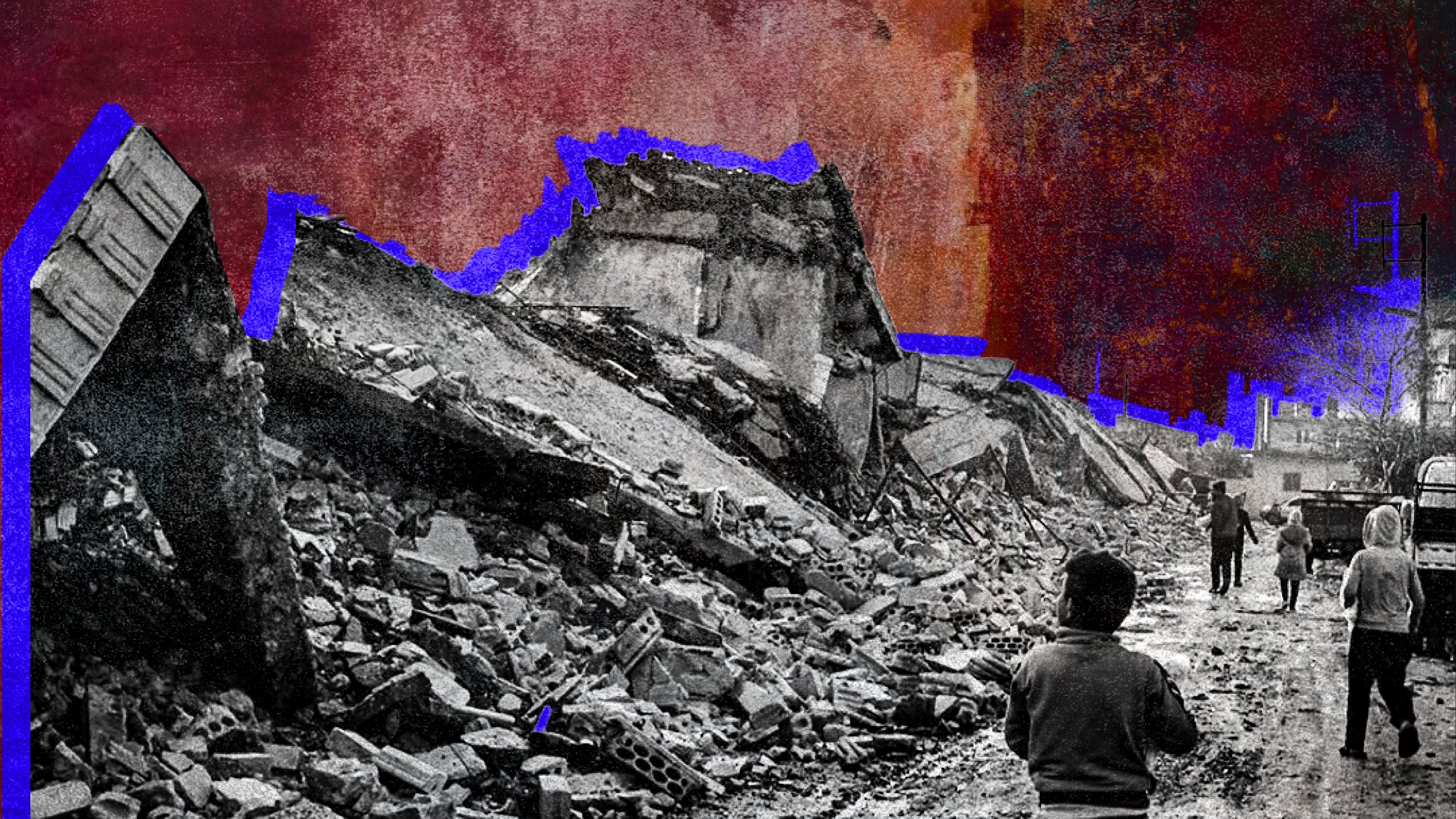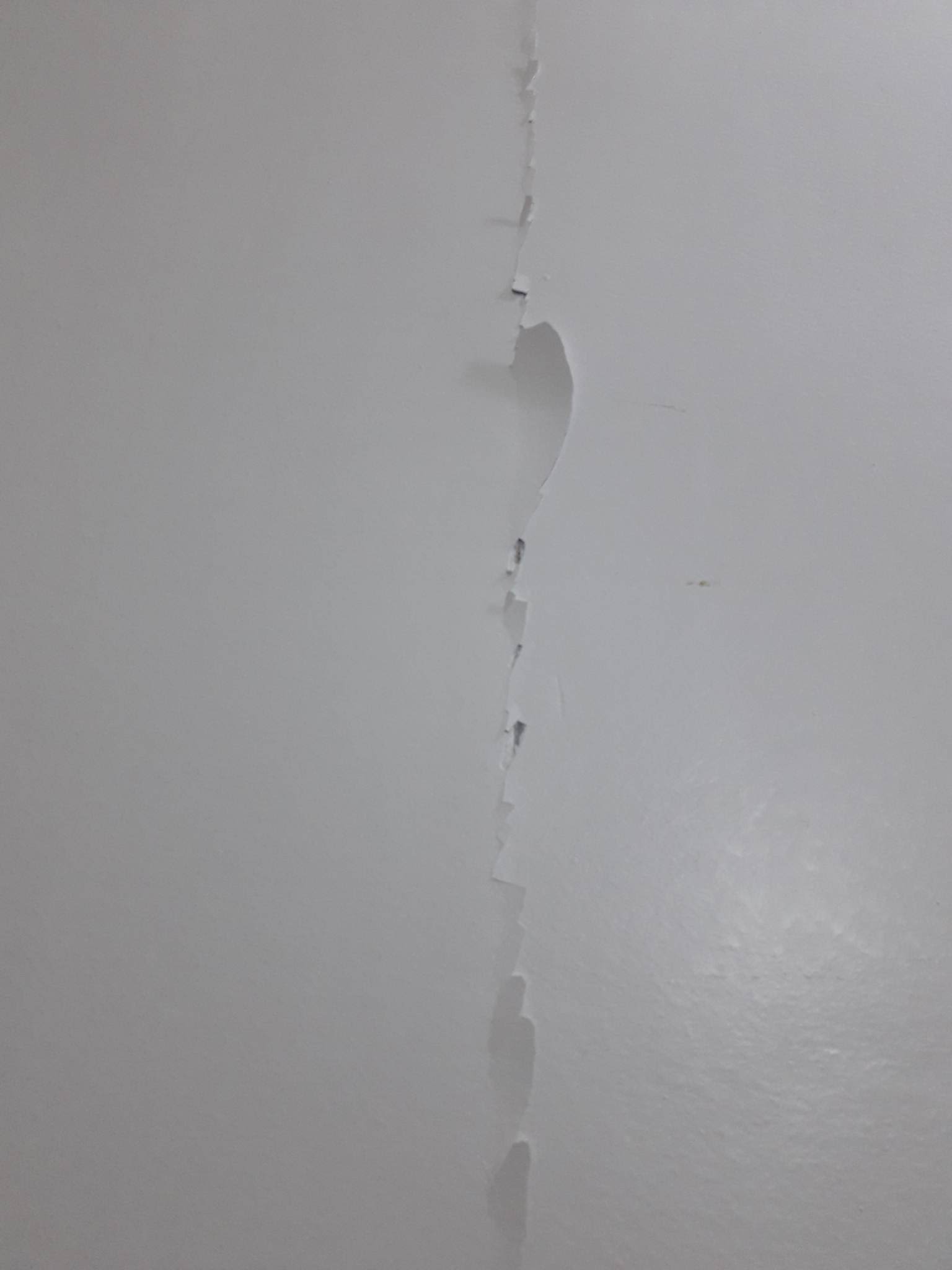
When I Forgot My Baby in His Crib
Nour Aldien ismaiel
A few minutes past 4 a.m., I woke up to my wife screaming. I got up quickly, and I felt the earth moving under my feet for the first time ever.
Power went out, and with it was lost the internet connection. Using a cellphone light, I carried the kids out into the street.
I was so alarmed that I grabbed my girls who could walk, and I forgot about my youngest son who woke up crying not knowing what was going on.
I went back, carried my baby, and went back to the street that started to fill up with neighbors. Everyone was screaming, kids were crying, and women were running holding their children.
Heavy rain trapped those who tried to move away from walls, roofs, and trees “as they should” during an earthquake. It was either we shielded ourselves with a roof that could fall down any moment, or we stood under the heavy rain that kept pouring down.
When I started to feel the frigid cold creeping into my limbs, I remembered that I was barefoot and in wool pajamas. So, I immediately went up and put on the first pants I found. And then what’s said to be a 6.5 aftershock followed, but I managed to go downstairs before it was over.
The first thing I was determined to do after surviving the first moments of the disaster, and making sure my mother was safe, was to get away from the residential area. And so, we aimlessly headed outside Idlib.
We went down a narrow road filled with cars carrying families fleeing the city.
A child in a car before me kept looking here and there, so that he might get a grasp of what was actually happening. His mother covered his head with a woolen cap that left his eyes open, and so he kept on looking at the world with wonder.
I wasn’t aware that I was close to a six-storey building that had collapsed on its sleeping residents, who could not escape.
At that moment, the sounds of ambulances and civil defense vehicles filled the place, along with the roar of cars racing against time to reach the corniche area, around Idlib, that’s free of residential buildings.
On the roadside, between two cars, I managed to park my car. I began to watch the road that, though wide, couldn’t fit those who were fleeing a new hell that had befallen Syrians who had experienced all different kinds of disasters.
Time seemed to hang heavy… We didn't know what we were waiting for, when we were going back home, or for how long we’d stay alert to residential buildings collapsing.
Between you and me, I was probably waiting for car owners parking near me to start heading back so that I’d too.
The responsibility parents carry is heavy espcialy when your children clinging onto you in panic, and believing you’re their safety and refuge while you’re just trying to keep it together and stay strong for them.
Now it’s past 7 a. m., and I’ve decided to go back after much thought. Even though it was still raining heavily, we’re most afraid of what the earth had in store for us. As we reached the house and had our cell phones connected to the internet that had miraculously survived with who had survived, we learned how huge the disaster was. Our only concern was the aftershocks that kept us alerted for days.
At 1 p. m. on Monday, the first day after the earthquake, we felt a tremor similar to the earthquake that struck at dawn. So, once again, we ran to the car.
so, we began a post-earthquake journey of "phobia" that we’re still on, especially with the spread of different rumors, on social media, of even stronger and more severe aftershocks; and fake accounts determining their timing and intensity.
Like millions of residents in northwestern Syria, we spent the day on alert as rescue and civil defense teams got engaged in recovering victims and searching for survivors. These attempts are still ongoing, as I write these lines.

Hairline cracks. Is it falling down?
Hairline cracks. Is it falling down?
Peace to the victims, a speedy recovery to the wounded and injured, and patience; solace; and consolation to all of us…
